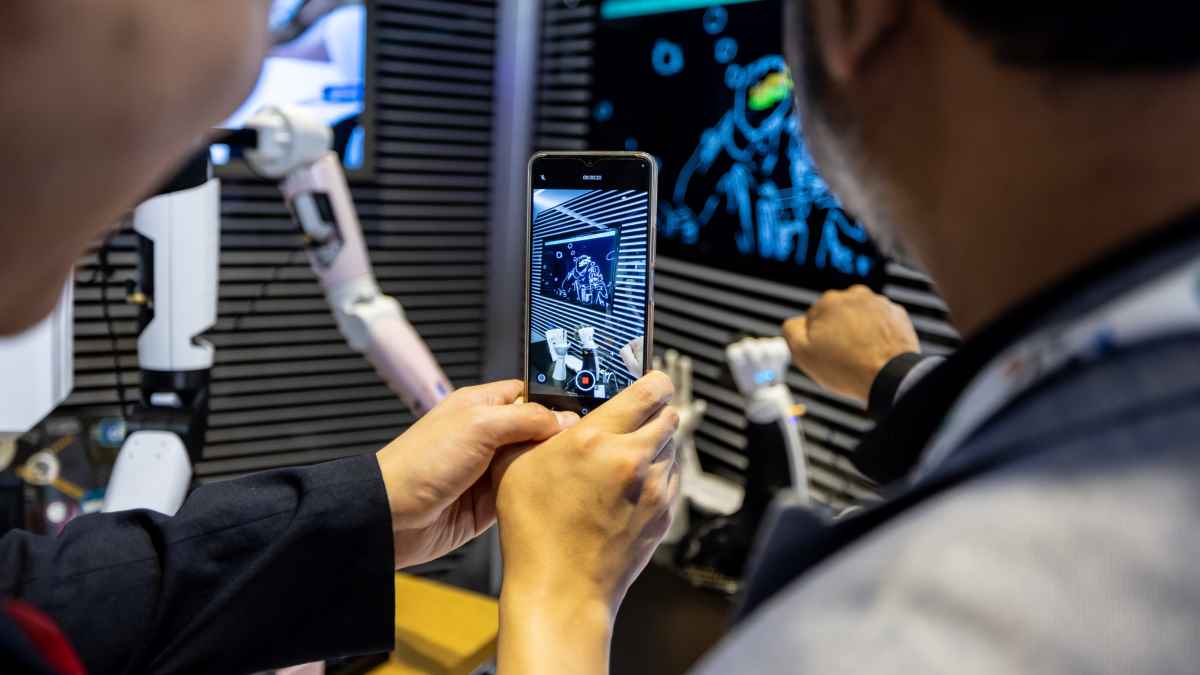The event aligns with the UAE government’s pioneering efforts to advance the digital health ecosystem, with the UAE’s digital health market projected to reach USD $487.30 million by the end of this year
DUBAI, United Arab Emirates, October 16, 2024/APO Group/ —
- Innovators and leaders from the most influential medical labs, hospitals, healthcare institutions, research centres and academia gathered in Dubai to discuss AI opportunities
- Neurology and remote patient monitoring were among the key topics on the agenda for discussion
- Tech enterprises and providers showcased the most impactful digital solutions to accelerate connectivity and drive transformation
Transformative health tech solutions were at the heart of conversations at GITEX GLOBAL’s GITEX DIGI_HEALTH 5.0 Dubai (www.GITEX.com), where thousands of tech enthusiasts and healthcare pioneers converged at Dubai World Trade Centre (DWTC) for a day of future health discussions.
The world’s largest tech event provided a platform to showcase the latest AI-driven digital health and health tech solutions, spotlighting innovations that are reshaping patient care on a global scale.
The event aligns with the UAE government’s pioneering efforts to advance the digital health ecosystem, with the UAE’s digital health market projected to reach USD $487.30 million by the end of this year. The show also supports Dubai’s commitment to adopting digital practices that benefit medical professionals and patients alike.
With AI-powered healthcare investments projected to make up 20% of global healthcare spending by year’s end, GITEX GLOBAL set the stage for industry leaders to explore how AI is revolutionising delivery and enhancing outcomes for millions of patients.
GITEX DIGI_HEALTH 5.0 Dubai brought together global professionals and leaders to build on that figure and discuss the impact the innovative tool is having on the day-to-day operations while also providing an outlook of what the future would hold. It attracted some of the biggest names in the global landscape including labs such as Biogen, Roche and Sanofi as well as tech giants Microsoft, M42, Lenovo. Also present were established medical institutions including Samsung Medical Centre, Harvard Medical School, Roche and many more.
Pioneering Robotic and AI in Digital Health
The evolving role of robotics in health tech was a major focus of the showcase and conference programme. Denis Ledenkof, Founder of Robosculptor, showcased how AI-powered robotics is transforming patient care via an autonomous platform for body treatments developed by health industry experts, emphasising robotic technology is providing plenty of benefits.
When it comes to robotic treatments, they help improve the experience of patients by just giving them access to a wider range of therapies as well as enhancing accessibility
He said: “AI is a powerful tool and is leading to better patient preferences. When it comes to robotic treatments, they help improve the experience of patients by just giving them access to a wider range of therapies as well as enhancing accessibility.
“One example that we’re using is an application that functions similarly to a taxi or delivery app where people can scan for treatments and displays the information that users would be looking for.”
Alex Aliper, Co-Founder and President of Insilico Medicine, a Hong Kong digital health unicorn – was part of another panel that delved into genomics. He discussed how precision medicine, powered by AI, is revolutionising genetic profiles – an approach set to transform treatments for diseases previously deemed incurable.
The future of AI in neurology
Meanwhile, following a study which showed that AI can reduce the risk of new vascular events by 25.6% in stroke patients, Aneesh Singhal, M.D, Director, Comprehensive Stroke Center & Vice-Chair of Neurology at Massachusetts General Hospital, gave an overview of what to expect in the field of neurology.
In his presentation, he discussed the Golden Bridge II trial, which showed that the use of an AI-based clinical decision support system had a significantly greater impact on the number of vascular events and stroke care quality than standard care in patients with acute ischemic stroke (AIS).
Elsewhere, Jong-Soo Choi, Chief Technology Officer at Samsung Medical Centre, one of Korea’s most renowned hospitals, shared insights into cutting-edge technologies such as Remote Patient Monitoring (RPM) and gene therapy and how they are setting the stage for the next wave of change.
Smart lens among innovations unveiled
Dubai’s own deep tech company Xpanceo made waves with the unveiling of smart contact lens for 3D imaging, and another for data reading, demonstrating wireless data transmission capabilities integrated directly into the lens. These innovations are set to redefine the boundaries of how data in real time is perceived, pushing the digital health landscape into a new era of smart diagnostics.
Oracle Health also displayed its innovative Clinical Digital Assistant. Leveraging AI-powered driven voice recognition, the assistant autonomously documents physician-patient encounters, interprets the information, and accurately inputs a draft note into the Oracle Health EHR, allowing the physician to quickly review and approve the clinical documentation.
GITEX GLOBAL is seamlessly connecting the world’s largest network of tech events with GITEX EUROPE Berlin, GITEX ASIA Singapore, GITEX AFRICA Morocco, and GITEX NIGERIA all part of its portfolio. These events are fostering collaboration and driving innovation to shape the tech landscape of tomorrow.
GITEX GLOBAL this year announced the launch of GITEX DIGI_HEALTH 5.0 Expo-Summit in Thailand, from 10-12 September 2025, in a destination touted with one of the highest potentials to leapfrog the digital health industry, putting the spotlight on digital solutions to address the rising demands across Asia.
More information on GITEX GLOBAL and to purchase passes, please visit www.GITEX.com
Distributed by APO Group on behalf of GITEX Global.


 Business4 days ago
Business4 days ago
 Events5 days ago
Events5 days ago
 Energy5 days ago
Energy5 days ago
 Energy3 days ago
Energy3 days ago
 Events4 days ago
Events4 days ago
 Business4 days ago
Business4 days ago
 Business3 days ago
Business3 days ago
 Business3 days ago
Business3 days ago















